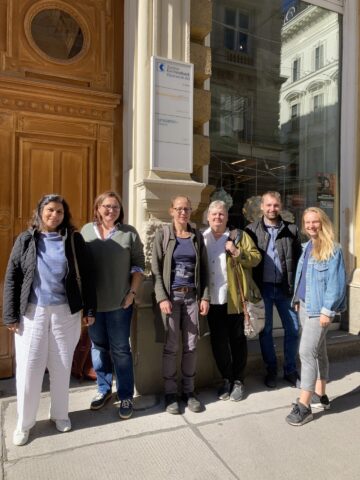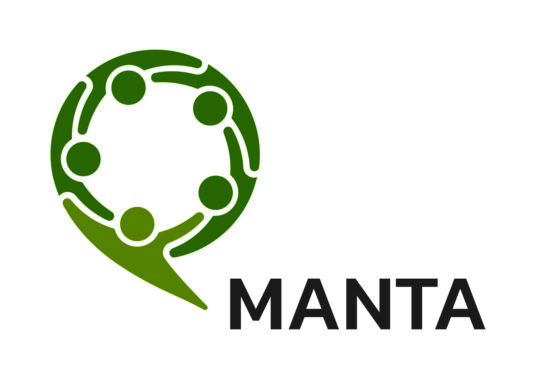Project overview
Many teenagers and young adults in Europe are by no means apolitical. They take to the streets: in Poland for a liberal abortion law, in Hungary for the rights of LGBTI people, and in many countries for climate protection (Fridays For Future, Extinction Rebellion). Associations, parties and unions do not seem to be appealing to young adults to the same degree – although they are important actors in a democratic state. This problem is not new. The question is: What measures can help – especially with regard to young people – to regain trust in representative democracy and possibly further long-term involvement at the institutional level? Certainly no one can offer patent remedies for this. One approach that deserves attention, however, are participatory instruments such as “mini-publics”. So far, few people know about these instruments, and equally unknown are the encouraging experiences of citizens in Ireland who participated in citizens‘ assemblies to develop recommendations for a new Irish constitution. 66 randomly selected citizens and 33 politicians met over several weekends to discuss, for example, the introduction of marriage for all. This was a highly emotional issue that polarized the population.
There have been three model mini-publics at the national level in Germany so far; in Austria, the second mini-public started at the end of 2021; at federal state level, Vorarlberg has many years of experience with mini-publics. Mini-publics are a topic that will have greater social relevance in the future. In Austria and Germany, there are considerations on how they can be institutionalized on a national level. The OECD also points out the importance of participation; in 2020, it published the empirical study “Innovative Citizen Participation and New Democratic Institutions”. Among other things, it deals with the conditions that must be met for a mini-public to be successful. These conditions are based on research by political scientists.
In the project, different scientific positions are didactically prepared, so that the professional competences of teachers and lecturers at universities are improved. As a result, teachers and other educators contribute to the development of students‘ civic competences and to their having a more differentiated knowledge of how they can participate politically. Thus, MANTA corresponds with the Erasmus+ priority “Participation in democratic life”.
The project’s partner organizations are based in Austria, Germany and Croatia, and the team combines practical, scientific and didactic-methodological expertise.
Objectives
The project supports teachers in educating students to become responsible citizens, to be able to participate fully in social and political life. The basis for this is knowledge of social, economic, legal and political concepts and structures as well as an understanding of global developments and sustainability.
The long-term objective of the project is to motivate young people to become involved in representative democracy, to help ensure that important ecological, political, social and economic problems can be adequately addressed.
The primary target group of the project are teachers. They expand their knowledge of new instruments of civic participation and learn how to implement these subjects with the help of the didactic principle of research orientation. The project deals with new and as of now little-known participation possibilities that are of interest to young people. In this way, young people can be motivated even more to get involved in decision-making at all levels.
The secondary target group are thus pupils. In politics classes and other subjects (e.g. law, social studies), potentials and limits of participation instruments such as mini-publics can be discussed. Through a teaching/learning setting that encourages them to develop research questions on specific topics, they improve their civic competencies.
Students and teachers can deepen their knowledge of new forms of participation. Mini-publics have recently been applied at EU level. One example is the Conference on the Future of Europe. Four mini-publics with a total of 200 citizens from Europe are involved. Students and teachers also learn how instruments that have been used for a longer time, e.g. the European Citizens‘ Initiative, can be modified to be more effective. Teachers learn practical exercises and methods to analyze citizens‘ councils and digital formats of participation in a differentiated way. Students learn that participation instruments and processes can be organized in very different ways, each with different effects.
Thus, the basic goal is for students to acquire a sceptical attitude and to learn that there are no simple answers to complex questions. This is an essential aspect of political judgment. It also includes the ability to think critically and develop arguments in order to be able to assess long-term consequences of decisions.
About Us
Organisations participating in the project:
- Demokratiezentrum Wien (Austria, coordinator)
- Institut für Didaktik der Demokratie, Leibniz Universität Hannover (Germany)
- Mehr Demokratie e. V. (Germany)
- GONG (Croatia)
- Gimnazija Pula (Croatia)
- Institut für Konfliktforschung (Austria)
- Volksschule St. Andrä-Höch (Austria)
The project team is composed of people working in different fields: General Education, Higher Education, Extracurricular Education and Youth Work. This ensures that the results will be used across sectors even after the end of the project.

The project team at the first transnational meeting in Vienna, September 2022
© Project Team MANTA
Partner Institutions
The project team consists of seven organisations from three different countries: Austria, Croatia, and Germany.
The leading institution of the project is Democracy Center Vienna (Demokratiezentrum Wien, Austria). The Democracy Centre Vienna is an independent scientific institution with tasks in democracy research and civic education. Our empirical and theoretical research serves the furthering of scientific knowledge, the strengthening of democratic political discourse and the transfer into educational applications. Democracy is an open and dynamic process that constantly has to be redefined in civic and political cooperation. As a continual process of learning and shaping, democracy depends on the conscious and active development through its citizens. As a form of government, social organisation and way of living, democracy signifies both the starting point and the goal of our activities.
The Institute for Didactics of Democracy (IDD, Germany) is a department of the Leibniz Universität Hannover. The IDD trains students for general education and vocational schools to teach the subject of politics and economics. Future teachers learn how to promote democratic attitudes in students so that they can grow up to be responsible European citizens. An important part of this is to critically reflect on one’s own teaching practice in a collegial exchange with fellow students.
Mehr Demokratie e.V. (Germany) is the largest non-governmental organization for direct democracy worldwide, non-partisan, non-profit. We see ourselves as a movement for direct democracy and citizen participation at all levels. We launch campaigns and use direct democracy to initiate legislative or constitutional changes. We start participation processes, such as the first two nationwide citizens‘ councils, and we convince politicians in talks about democratic reforms. We regularly publish reports, rankings and reform proposals. Mehr Demokratie also advises on citizens‘ and referendum petitions and network citizens‘ council initiatives.
Gong (Croatia) is a democracy watchdog organisation active in Croatia and the EU. Founded in 1997 as the first independent election observation organisation in Croatia, Gong has since grown into an organisation that is equally engaged in contributing to the quality and transparency of democratic institutions and processes, and to a participatory democratic political culture. The organization’s core portfolio includes the topics of democratization, good governance, anti-corruption, fair elections, civic education, media literacy, active civil society and responsible media. Gong has conducted a large number of informative and advocacy online campaigns from a wide range of topics. Campaigns on good governance, democracy, judiciary, anti-corruption, right to information, open data, civil society, electoral system, voting rights, youth participation and active citizenship are regularly conducted through visually attractive videos, quizzes, infographics, visuals, comics, etc. These campaigns have a large number of public reactions or media coverage, reaching a wide audience. Gong conducts research, advocacy and educational activities in Croatia and the EU with substantial collaboration within the SEE region (Southeast Europe). Gong is highly trusted by Croatian citizens (as shown in research by the Faculty of Political Science in Zagreb) and is recognized as the foremost organization in the field of democratization and fair elections.
Gimnazija Pula (Croatia) is a public secondary school founded by the Istrian County’s regional Government and financed by the Ministry of Education. Principal Nikola Vujačić manages the school and its staff while his work is supervised by the School Board that comprises representatives from the County Government, Parents’ Council, and elected staff members. Teachers also participate in some of the decision making through regular Teacher’s Councils. Finally, elected student representatives are members of the Students’ Council – a body that has an advisory role in decision making processes. We hope to empower this body even more, so this project could be a great way to do that. All gymnasiums in Croatia prepare students for their future education at university level within four years of educational programs that are completed when students have passed the obligatory national exit exams. The school was founded in 1947 and since then it has established itself as the biggest and one of the most important secondary schools in the Istrian County with almost 700 students organised in 28 classes, and ca. 80 employees – most of them teachers. The school offers three slightly different educational tracks (general, maths and science, and languages). All our students acquire and apply a wide span of general knowledge and skills in the fields of STEM, languages, reading and writing, media literacy, computer science, communicational skills, active participation in the society, independent learning, project-based learning, job shadowing in various institutions, etc.
The Institute of Conflict Research (Institut für Konfliktforschung, Austria) is a Vienna-based non-profit association that was founded in 1976 with the purpose to research political and social conflicts in an interdisciplinary way and to develop possible solutions. As a non-university institution, the IKF conducts applied social research. The central fields of interest since the mid-1990s include violence in the family/partner violence; historical social research; politics of social research: politics of memory; other areas of work include gender research, conflicts of Ideologies and conflicts of inequality (especially anti-Semitism, racism and sexism). For many years, the institute has been working in larger research cooperations or has held the lead, especially in connection with the Institute’s focus on “Violence in the Family” in projects funded by the European Commission.
St. Andrä-Höch Volksschule (Austria) is a four-grade school for students between the ages of six and ten years. The school is located in a rural area. Currently, 57 children attend the school. The team consists of six regular teachers and one recreational teacher. There is close cooperation with the municipality of St. Andrä-Höch and the St. Andrä-Höch Parents‘ Association. School democracy is practiced in class forums and school forums. In Austrian schools, civic education should be considered as an interdisciplinary teaching principle in all subjects and at all school levels. The Austrian curriculum does not provide for an independent subject of political education in the age group of six to ten years. In the elementary school St. Andrä-Höch, the goals of civic education are achieved by a competent school organization, which utilizes e.g. e(gender-)reflective attitudes within the teaching staff, defined guiding objectives and the considered choice of textbooks.
Funded by the European Union. Views and opinions expressed are however those of the author(s) only and do not necessarily reflect those of the European Union or the European Education and Culture Executive Agency (EACEA). Neither the European Union nor EACEA can be held responsible for them.


